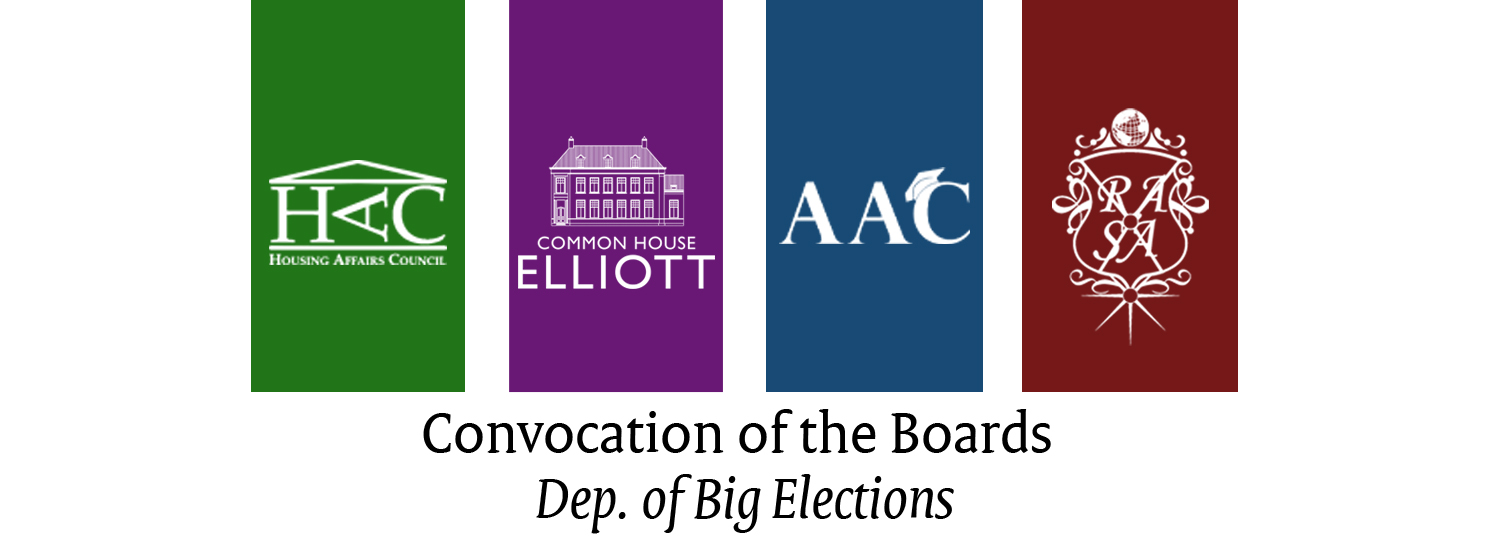By Debby-Esmée de Vlugt
As the spring semester is progressing, we are getting closer to one of UCR’s most discussed events of the year: the big board elections. Election gossip has become a part of our daily lives again, and the ‘All Boards General Info Session’ has already taken place last week. While some first and second year students are starting to think about the possibility of joining RASA, AAC, CHEF, or HAC, the current boards are preparing to let go of everything to which they have dedicated huge amounts of time in the past year.
From my own experience, I know that making the decision to run for a big board comes with some uncertainties and doubts. Therefore, I decided to share some information that you could take into account when considering your candidature. Through this article, I hope to tell you why you should think about running, and which things you should take into account for the election procedure. My own point of view is limited to one position and board, so I have gathered input from many different big board members to provide you with some general tips.
Making the Decision
Taking on a board position comes with a lot of work, which can make it quite difficult to decide whether or not you want to run. This is completely understandable, and this decision should not be rushed. As a student representative, you will be dedicating much of your free time to the student community, and you will be responsible for many projects and events. Yet, it is important to realize that you also gain a great deal from spending a year as student representative. Most students develop outstanding skills by doing board work. Time management, planning, networking, public speaking, and working in a team are only a few examples. You will sometimes have to leave your comfort zone, but this can have a great effect on your personal development. Besides, it is immensely satisfying to dedicate yourself to helping individual students and to the improvement of the student community.
When choosing a specific position to run for, you need to bear several aspects in mind. Most importantly, you need to choose the board that is closest to your heart. In most cases, it is more crucial to be passionate about the organization rather than having a fancy CV. Dedication is more important than being incredibly experienced. You also have to consider which tasks come with a specific position, because all are different. Attend the election info sessions if you are unsure about which one includes the work that you would like to do. Lastly, there are some positions for which you should be able to speak Dutch. In Elliott there are three for which this is required (Chair, Secretary, and Operations Manager), and there is one in the AAC (External Officer). For some other positions it might be convenient, but not absolutely necessary. In fact, do not feel discouraged to run for a big board if you are a foreign student! We are an international college for a reason, and non-Dutch students should therefore also be fully represented in the student boards.
Election Season
After deciding to become a candidate, the next thing to consider is your election campaign. In the first week after the spring break, posters will start to appear around campus, and candidates will receive several opportunities to convince the student population that they should be elected. This period serves two goals. Firstly, this is the time to introduce yourself to anyone who does not know you yet. It is important to show your face, voice your plans, and create a positive image of yourself. If you are already known around campus, this is your chance to introduce yourself as a serious contestant for the position you want to take on. Secondly, you should use the campaign period to show your professional side. How you act and how you prepare yourself for (pre)-election night can be used as indicators of your capability and work ethic. Try to aim at demonstrating why you are the right candidate for this position, and do not focus on your opponent as being the ‘wrong’ one. This might be tempting to do, but it only works to your own disadvantage. Try to focus on the plans that you have for the coming year, and how you hope to realize those. Is there anything that you would like to achieve in particular? Include it in your election program to show that you have specific plans to make improvements.
Election Night
April 12 will mark the end of election season, and therefore possibly the beginning of your career as a student representative at UCR. Try not to be too scared of this date. It might seem intimidating to stand in front of a large audience and to speak about your plans to hundreds of people, but this should not stop you from running for the position that you want. Try to focus on various topics on your posters, in the election booklet, and in your two speeches, so voters get a rather complete picture of who you are. In the end, it is not about winning the elections, but about making a change at UCR. Once you are confident that you can, just be yourself.
Above all, enjoy the experience! Even if you are not elected, that does not mean that you cannot add anything to the community. There are a hundred different ways to improve student life at UCR. If you have any questions, feel free to approach any of the student representatives. We are probably even more excited about elections than anyone else, so we would love to answer!
Debby-Esmeé de Vlugt, Class of 2016, is a social history, religious studies, and philosophy major from Harderwijk, the Netherlands.

